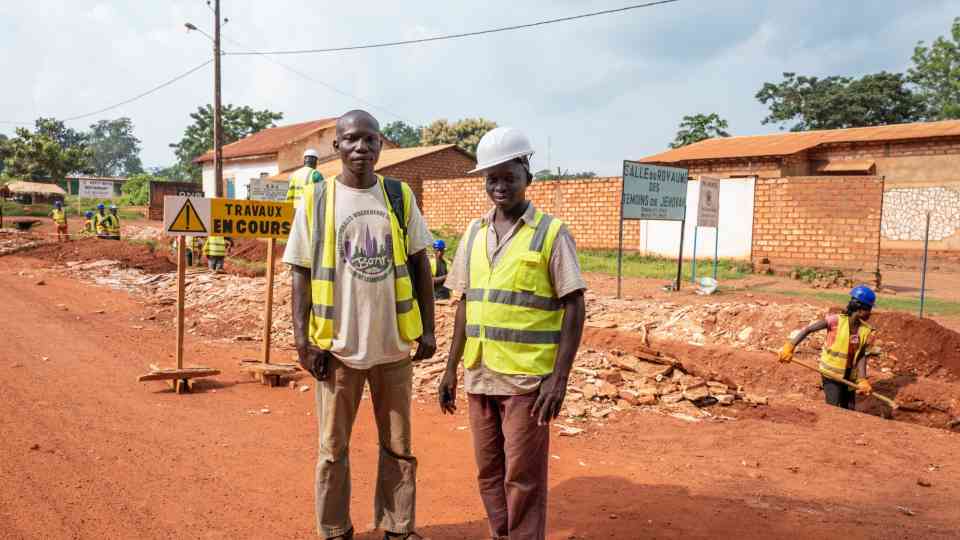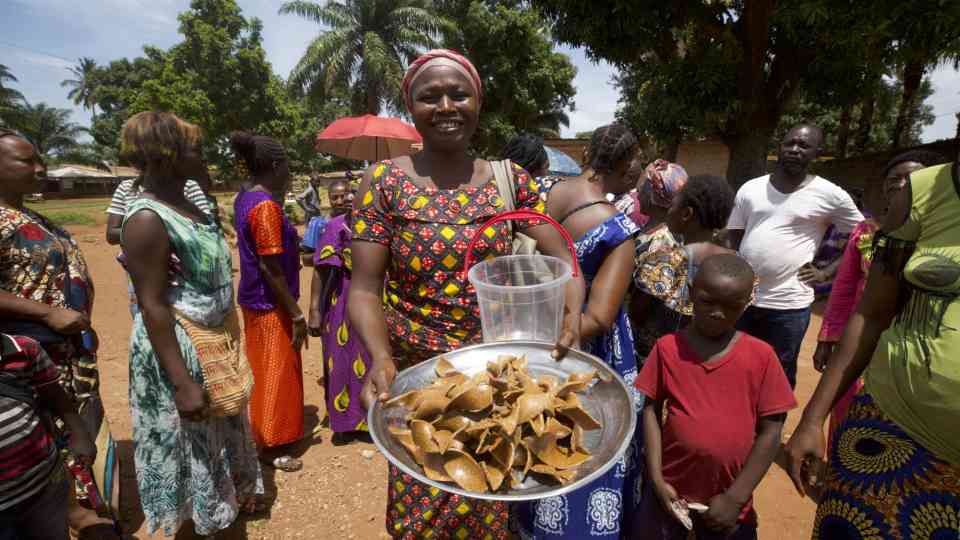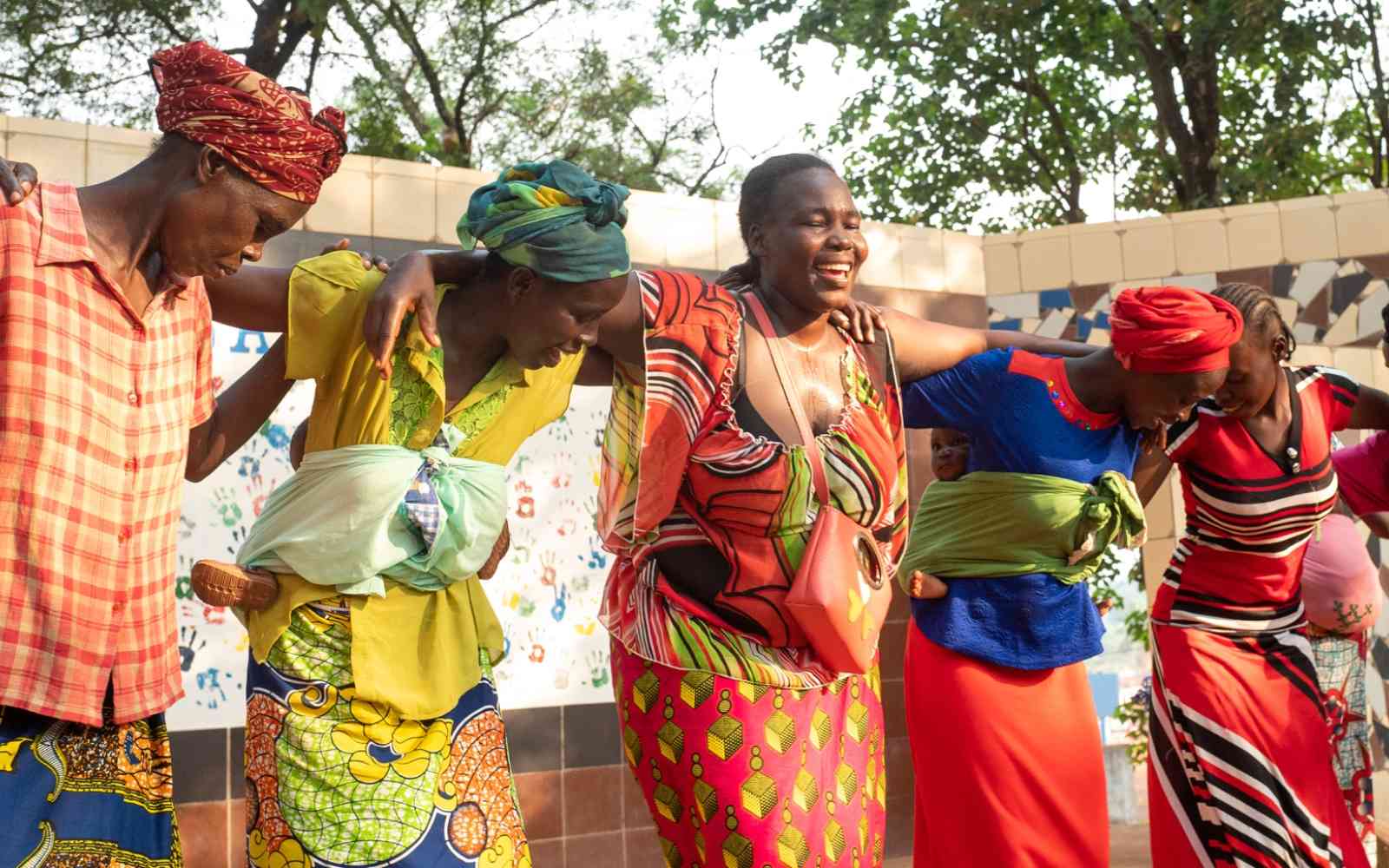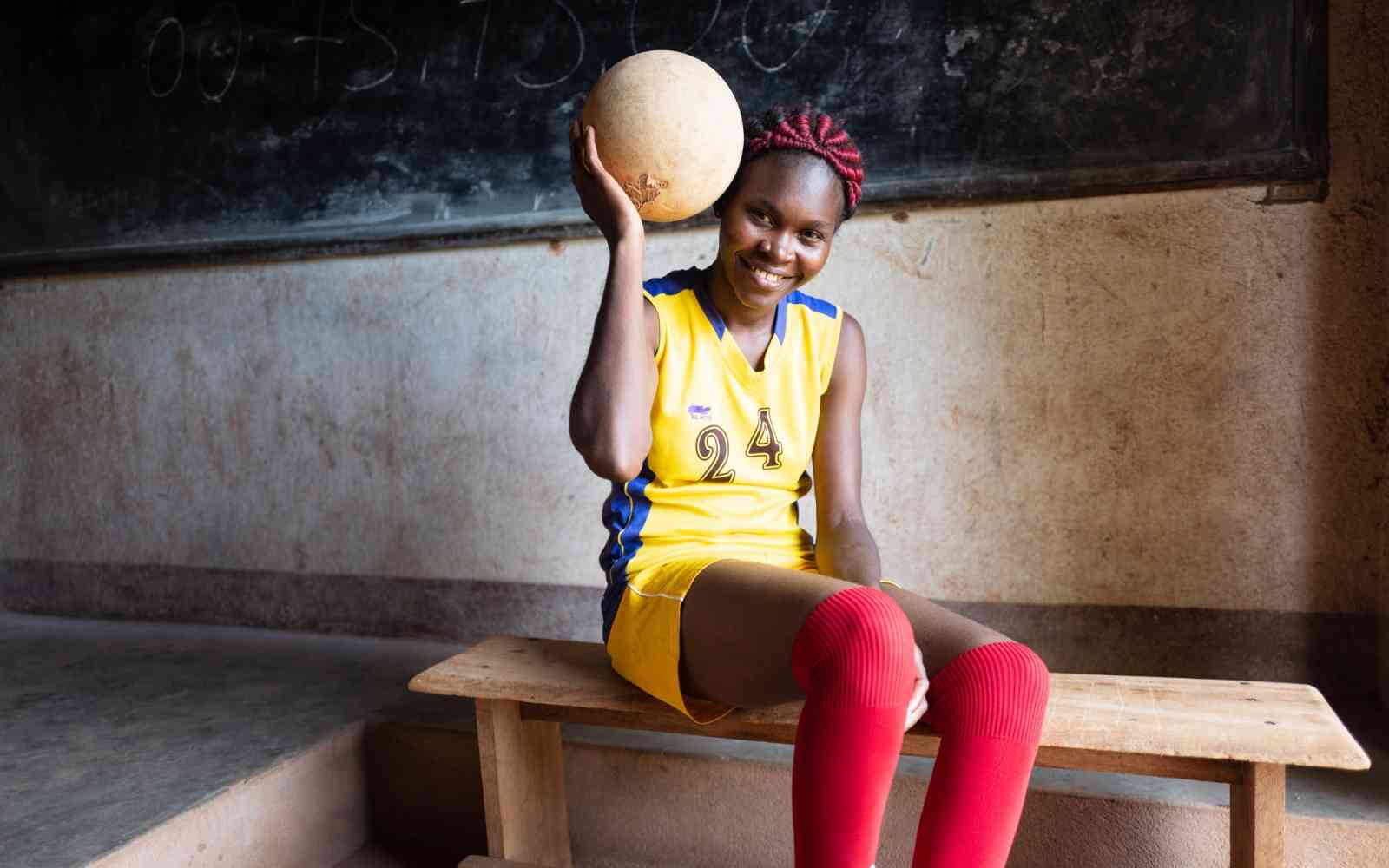The United Nations Office for Project Services (UNOPS)
Reaching those most in need
Displacement due to conflict is on the rise. In the Central African Republic, the government, UNOPS and the World Bank worked together to support communities impacted by conflict – read how in the third of a three-part series.
In the Central African Republic and elsewhere, fragility, conflict and violence – compounded by the devastating impact of climate change – are driving people from their homes. Over the past decade, crises have forced millions to flee their homes to seek safety and peace.
The COVID-19 pandemic and climate change-linked natural disasters such as flooding have placed an additional toll on people fleeing from conflict.
Alongside the Central African Republic's Ministry of Social Affairs and National Reconciliation, UNOPS implemented the 'Support to Communities Affected by Displacement' (PACAD) project to support communities affected by forced displacement.
“Thanks to this project, the government has succeeded in bringing back many people, giving them their place again,” says Victor Bissekoin, Prefect of Ouaka.
Developing community infrastructure
UNOPS and the World Bank supported the government of the Central African Republic's efforts to build community infrastructure and increase access to basic services in remote, hard-to-reach areas of the country.
Rehabilitated roads now connect communities – and increase opportunities for economic prosperity.


New solar streetlights have helped increase a sense of security in communities.
And the construction and rehabilitation of schools, a youth centre, a health centre and a municipal park – among other community infrastructure – have strengthened local communities.
Social inclusion and sustainability
Covering seven cities and two districts, PACAD helped improve access to basic services, built social infrastructure and created social safety nets for some of the most vulnerable communities – promoting stability, inclusion and resilience.
"PACAD's achievements not only meet infrastructure needs in a sustainable way but also those in terms of job creation,” says Virginie Baikoua, former Minister of Social Affairs and National Reconciliation, Central African Republic.
Direct help to those who need it most
Cash transfers help people who have been displaced meet their basic needs and help to strengthen social safety nets – reducing poverty, contributing to economic growth and promoting national reconciliation.
They ensure that income is redistributed to the poorest and most vulnerable, enabling households to make investments in their future, helping households manage risks and supporting the government with making choices that support efficiency and growth.


Using picture identification cards to verify the correct person is receiving payments, each participating household received eight quarterly cash transfers of approximately $50 over two years to meet their needs.
Recipients later received the payments as electronic transfers via mobile phones purchased by UNOPS, which reduced the security challenges of physically transporting and delivering cash – and enabled people to better access financial and educational services.
Meeting needs
Recipients have control over how to use the funds they receive. These funds enable them to invest in their livelihood and live in dignity.

“PACAD has transformed my life, it has allowed me to become a market seller. I can now provide for the needs of my five children, who I have even enrolled in school and who are benefiting from adequate nutrition.”
- Zeinab, Cash Transfer Recipient in Bambari
About the project
The 'Support to Communities Affected by Displacement' (PACAD) project is a $42 million programme funded by the World Bank in partnership with the government of the Central African Republic. Implemented by UNOPS, it is divided into three areas: infrastructure, cash transfer and community mobilization. Each component aims to address the basic needs of displaced communities in seven cities and two neighbourhoods of the capital, Bangui, to help improve living conditions and reduce poverty.
Key objectives of the programme are to promote peaceful dialogue among the communities by involving them in the planning, construction and maintenance of infrastructure; improve their access to services; and ensure the most vulnerable people have sufficient financial means to meet their daily needs.




















